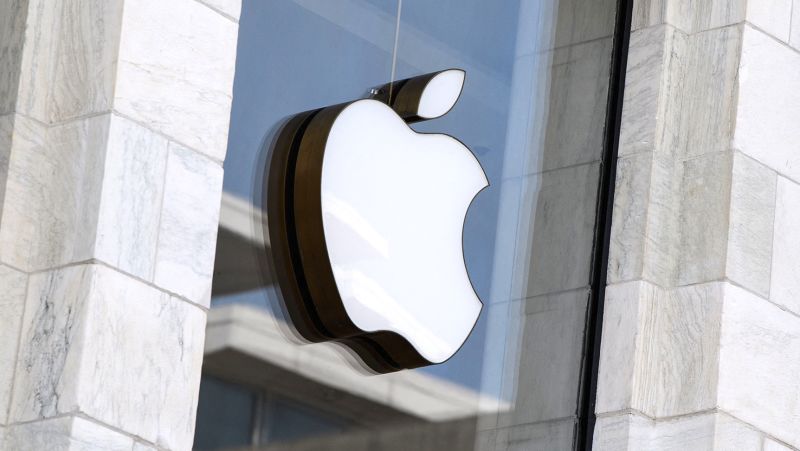Nicholas Kamm/AFP/Getty Images
An Apple store in Washington, DC, seen in September 2021.
London
CNN
—
European Union regulators have accused Apple of breaking tough new digital competition rules by preventing app developers from freely directing consumers to cheaper services.
The European Commission’s preliminary findings stem from an investigation opened in March. If found guilty, the company could face a fine of up to 10% of its $383 billion annual global revenue, the EU’s executive arm said in a statement Monday. The fine can be increased to 20% of the company’s global revenue if it repeats the offense, it added.
Monday’s action marks the first time the Commission has accused a company of breaching its landmark Digital Markets Act. The DMA, which came into force in March, is a sweeping set of competition rules aimed at curbing the power of Big Tech.
That month, the Commission announced that it had launched investigations into Apple (AAPL), Google parent Alphabet (GOOGL) and Facebook parent Meta (META) on suspicion they were failing to comply with the DMA.
The three companies have been designated as “gatekeepers” by the Commission — Big Tech firms crucial to interactions between businesses and consumers through their links to “core platform services,” such as digital marketplaces and app stores.
The Commission must reach the final decision on whether Apple has failed to comply with the DMA within one year from the opening of its investigation on March 25.
Apple said in a statement Monday that, over the past few months, it had “made a number of changes to comply with the DMA in response to feedback from developers and the European Commission. We are confident our plan complies with the law.”
The Commission has provisionally found that, according to the rules of Apple’s app store, “developers cannot provide pricing information within the app” or communicate “in any other way” with their customers to steer them toward offers available on alternative platforms.
Apple allows so-called “steering” by developers only through links in their apps that redirect customers to a web page, the Commission said. But that “link-out process is subject to several restrictions,” it added.
“Today is a very important day for the effective enforcement of the DMA,” Margrethe Vestager, the EU’s competition and digital chief, said in Monday’s statement. “Steering is key to ensure that app developers are less dependent on gatekeepers’ app stores and for consumers to be aware of better offers.”
Apple said in its statement: “All developers doing business in the EU on the App Store have the opportunity to utilize the capabilities that we have introduced, including the ability to direct app users to the web to complete purchases at a very competitive rate. As we have done routinely, we will continue to listen and engage with the European Commission.”
The Commission also said it had opened another investigation, into whether Apple’s new contractual requirements for app developers breach the DMA. These requirements include a “core technology fee,” which charges developers of third-party apps €0.50 ($0.54) each time their app is installed.
The Commission’s initial findings against Apple come only months after it fined the company €1.84 billion ($1.97 billion) for preventing rival music streaming services such as Spotify from telling iPhone users that they could find cheaper ways to subscribe outside of Apple’s app store. It was the bloc’s first-ever antitrust penalty on the US tech giant.
Apple said in a statement at the time that app developers “compete on a level playing field” on its app store and that it planned to appeal the fine.
In January, Apple announced changes to its handling of apps in the EU in anticipation of the DMA coming into effect. That included plans to allow third-party app stores on iPhones and iPads for the first time in the company’s history and significant cuts to its app store fees.
This story has been updated with additional information.

